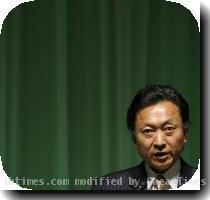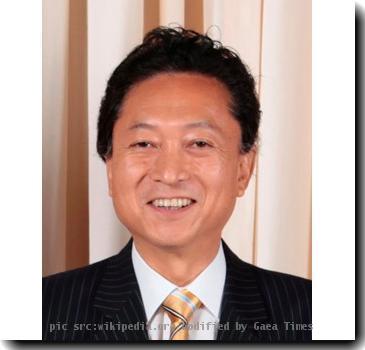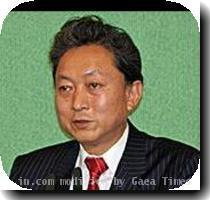Japan’s prime minister steps down over US base row, hoping to boost party ahead of elections
By Yuri Kageyama, APWednesday, June 2, 2010
Japan’s prime minister steps down over US base row
TOKYO — Japanese Prime Minister Yukio Hatoyama resigned Wednesday to improve his party’s chances in an election next month, after his popularity plunged over his broken campaign promise to move a U.S. Marine base.
Finance Minister Naoto Kan, who has a clean and defiant image, emerged as a likely successor. He signaled he intends to run for leadership of the ruling Democratic Party of Japan at a party meeting to be held Friday.
Hatoyama swept into office just eight months ago, defeating the long-ruling conservatives and capturing voters’ imaginations with his promises to bring change and transparency to government, as Japan grappled with a stagnant economy and an aging, shrinking population.
So when he failed to deliver on his pledge to move the Marine Air Station Futenma off the southern island of Okinawa and his staff got ensnared in a political funding scandal, his approval ratings rapidly sank, falling below 20 percent.
“He could not live up to the huge expectations,” said Tetsuro Kato, professor of politics at Hitotsubashi University in Tokyo. “He just proved himself to be a rich kid without experience and leadership skills.
“The expectations were so great, the disappointment was also great,” he added.
Hatoyama, a 63-year-old professor-like millionaire with a Ph.D in engineering from Stanford University, is the fourth Japanese prime minister to resign in four years. Viewed as somewhat aloof and eccentric by the Japanese public, he was nicknamed “alien.”
“Since last year’s elections, I tried to change politics in which the people of Japan would be the main actors,” Hatoyama told a news conference broadcast nationwide. But he conceded his efforts fell short and people stopped listening to him.
“That’s mainly because of my failings,” he said.
In recent days, calls grew within his own party for Hatoyama to quit or imperil its chances in upper house elections likely to be held sometime in July. The grandson of an earlier prime minister, he acknowledged in a news conference that he had disappointed the country on the Futenma issue, as well as the funding scandal.
The DPJ’s powerful No. 2, Secretary General Ichiro Ozawa — seen by many as a “shadow shogun” — also resigned.
The party will meet Friday to choose a new chief, who will almost certainly become the next prime minister because the Democratic Party of Japan controls a majority in the more powerful lower house of parliament.
Analysts say the new prime minister faces an enormously challenging and unenviable job of steering his party through an extremely difficult election and minimizing the damage.
The leader would have to woo a disenchanted public, disgusted over Hatoyama’s indecisiveness and broken promises and also have to carry out the government’s promise with the U.S. to build a new base on Okinawa. In Washington, the U.S. State Department had no comment on Hatoyama’s resignation.
The new leader may not even last long — in case he needs to resign to take responsibility for the DPJ’s poor showing in the balloting.
Among the strong contenders as Hatoyama’s replacement is Kan, 63, a former health minister, who has been popular with voters after exposing a government cover-up of HIV-tainted blood products that caused thousands of hemophilia patients to contract the virus that causes AIDS. He has a reputation for speaking his mind and sometimes being hot-tempered.
Foreign Minister Katsuya Okada, seen as mild and levelheaded, is another possible candidate. But his involvement in discussions over the Futenma base issue might be viewed as a negative by voters.
The slick-haired, soft-spoken Hatoyama, who grew up in a well-to-do family of politicians, may have grown too out of touch with everyday people and their economic hardships.
“I was very disappointed,” said Masahiro Ueda, 38, who works for a software company, of Hatoyama’s failure to deliver. “I thought he could change things, but in the end the issue just went back to square one.”
Besides Futenma, Hatoyama reneged on other promises such as cash payments for children to reverse an aging society, halving the money from the initial proposal, and toll-free highways, which have been postponed.
Japanese politics tend to be unpredictable, and it is still unclear who will be picked in the jockeying of power among blocs of lawmakers in the Democratic Party. The pick will be Japan’s next prime minister, because the Democrats have the majority in the lower house that chooses this nation’s chief.
Hatoyama’s coalition was dealt a blow over the weekend when the Social Democrats, a junior partner in the coalition, withdrew from the government after Hatoyama dismissed the party’s leader, Mizuho Fukushima, from his Cabinet because she could not accept his decision on Futenma.
Half the seats in the 242-member upper house will be up for election. The DPJ and its Peoples New Party coalition partner together have 122 seats, with 56 up for grabs in July.
The DPJ and its partner can lose a majority in the chamber and still remain in power because they control the more powerful lower house. But it will make it more difficult for them to pass key legislation.
The once-powerful LDP remains in disarray after its crushing defeat last year, but recent polls show some voters may be swinging back toward the party.
Japanese media reports have also listed Transport Minister Seiji Maehara and Reform Minister Yoshito Sengoku as other possible successors.
Hiroshi Kawahara, political science professor at Waseda University, said Kan may emerge the safe choice because of his clean image — although he is probably unable to save the party from defeat in July’s elections.
“Public disappointment is now so deep that Kan alone cannot restore voters’ confidence,” he said.
Hideto Sakaoka, a 54-year-old company employee, says he isn’t voting for the DPJ again.
“We cannot let Hatoyama lead Japan,” he said. “His words and actions always kept changing, and I don’t trust him anymore.”
Associated Press writers Shino Yuasa, Mari Yamaguchi and Malcolm Foster contributed to this report.
Tags: Asia, Demographics, East Asia, Japan, North America, Political Issues, Political Resignations, Political Scandals, Population Aging, Tokyo, United States, Yukio Hatoyama


